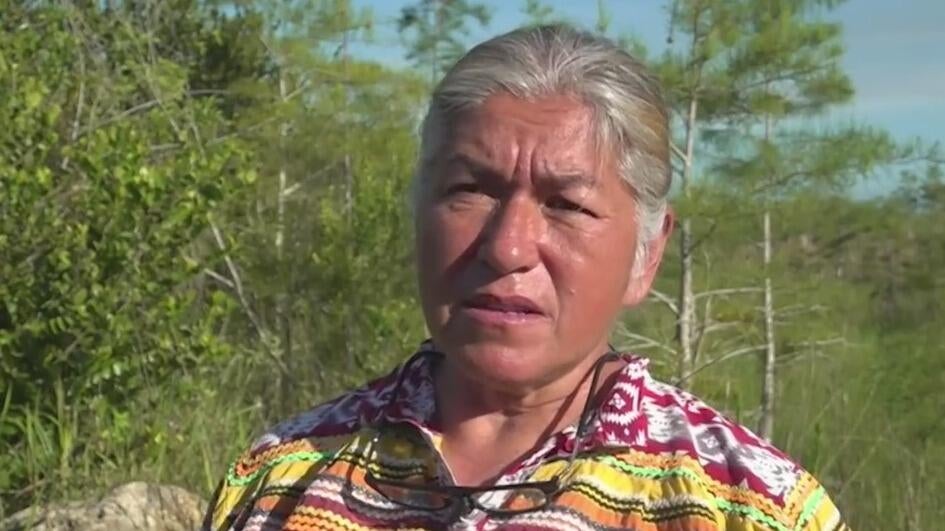Members of Miccosukee Tribe, Everglades residents decry Alligator Alcatraz as threat to land and culture
Members of the Miccosukee Tribe and longtime Everglades residents are speaking out against Alligator Alcatraz, a detention facility that they said threatens the land, water and cultural heritage of Big Cypress National Preserve.
"Water is our relative and sometimes we have to connect with that water and connect with that environment. And the only way to do that is actually go in," said tribal member Betty Osceola, standing in the same waters that generations of her family have called home.
A threat to nature and culture
Osceola, who leads airboat rides and walking tours in the area just a mile south of the facility, said what was once described as temporary now looks permanent.
"Here we are surviving and thriving out here and here they are again trying to describe this as a wasteland, that nobody could survive out here. But we're still out here trying to defend this area," she said.
To Osceola, protecting the Everglades is about more than preservation—it's about survival.
"To save the Everglades, my understanding is, is to save ourselves," she said.
Concerns over environmental impact and development
Jackie Butcher Obendorf, daughter of renowned Everglades photographer Clyde Butcher, also raised alarms about the facility's environmental impact. Her family gallery sits six miles west and she said the changes are hard to ignore.
"We've seen generator after generator going in there -- well, that's fumes. That's runoff that's going into the Everglades. And you can see I'm wearing a mosquito netting because we so happen to have the worst mosquitoes we've had in years," she said.
Butcher Obendorf said her father has spent the past 40 years educating the public about the Everglades through photography and swamp walks.
"We actually give people walks through the swamp because we want them to fall in love with it," she said.
"This place belongs to the world"
Both women said they worry about what may come next if the facility remains in place.
"Someone may have an idea to put something else here. Transform it into something else. So the door to development has been opened," said Osceola.
She and others in the area are calling for awareness and action.
"This place belongs to the world. Everyone has the right to come here. Everyone has the right to express concerns about what's happening here," Osceola said.
They also cited concerns about light pollution, saying the bright lights from the facility are diminishing the internationally recognized dark skies of Big Cypress.



